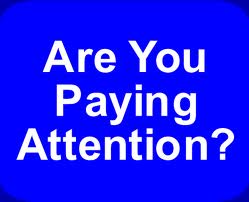Temporary Skills versus Durable Skills

I earned my Ph.D. in 1984. The hard skills I learned are now out of date. But I still use many of the soft skills most every day. One hard skill I learned, for instance, was how to code in Fortran. Not much call for that today. But I also learned how to use statistics, do experiments, weigh evidence, reach conclusions, defend my thinking, and communicate effectively. When companies invite me to consult with them, they want my process skills, not my Fortran skills.
We have traditionally paid more attention – and more money – to hard skills. After all, hard skills are … well, hard to come by. As such, they must be worth more. My Fortran skills were hard to master, useful, and hard to replace in the job market. They were worth paying for.
Hard skills, as traditionally defined, are often quantitative, structured, or rules based. They may include accounting, physics, financial modeling, proficiency in certain software packages, programming, data mining, data analysis, diagnostics, and so on. They are also teachable and testable. You can find plenty of coding bootcamps, for instance. If you want to know whether someone can program in Python, you can easily devise a test to find out.
Soft skills, on the other hand, are “…more intrinsic to personality and more difficult to judge quickly.” Soft skills include the ability to get along with others, the ability to explain things, self-control, ability to focus, creativity, empathy, critical thinking, politesse, ability to negotiate effectively, and wisdom. You may not be born with soft skills, but you typically don’t acquire them in the classroom. You learn them from life.
Additionally, hard skills tend to be immune to culture. Programming in Python is pretty much the same whether you’re French, or American, or Japanese. Soft skills often vary by culture. Communicating with senior executives is very different in Tokyo than in New York.
Teaching hard and soft skills also varies. Online education is often effective for hard skills. Many hard skills are rules-based, and we can learn rules remotely. Learning soft skills requires time, coaching, and motivation. Instead of learning rules, we are modeling behaviors.
Because they’re rules-based, hard skills are much more likely to be automated. I used to hire an accountant to do my taxes. Now, I use a software package on my laptop. Most rules-based processes – including computer programming, medical diagnoses, actuarial services, accounting, and stock trading – will likely be automated over the next decade. We won’t need nearly as many people in those professions.
The pace of automation seems to be accelerating as well. I might have worked for 20 to 25 years as a Fortran programmer. Today, I suspect that learning Python will keep you employed for no more than five years or so. Then you’ll be replaced, perhaps by a computer.
For all these reasons, I would like to change the names we use to describe these skills. Instead of hard skills and soft skills, I would call them temporary skills and durable skills. By changing the labels, we will also change our perceptions. Clearly durable skills are more valuable than temporary skills. By describing them more accurately, we can make our investments – in ourselves and others – more wisely. That’s a durable skill.
I’m certainly not the first to propose new labels for hard and soft skills. Click here, here, and here for some of the articles that have shaped my thinking